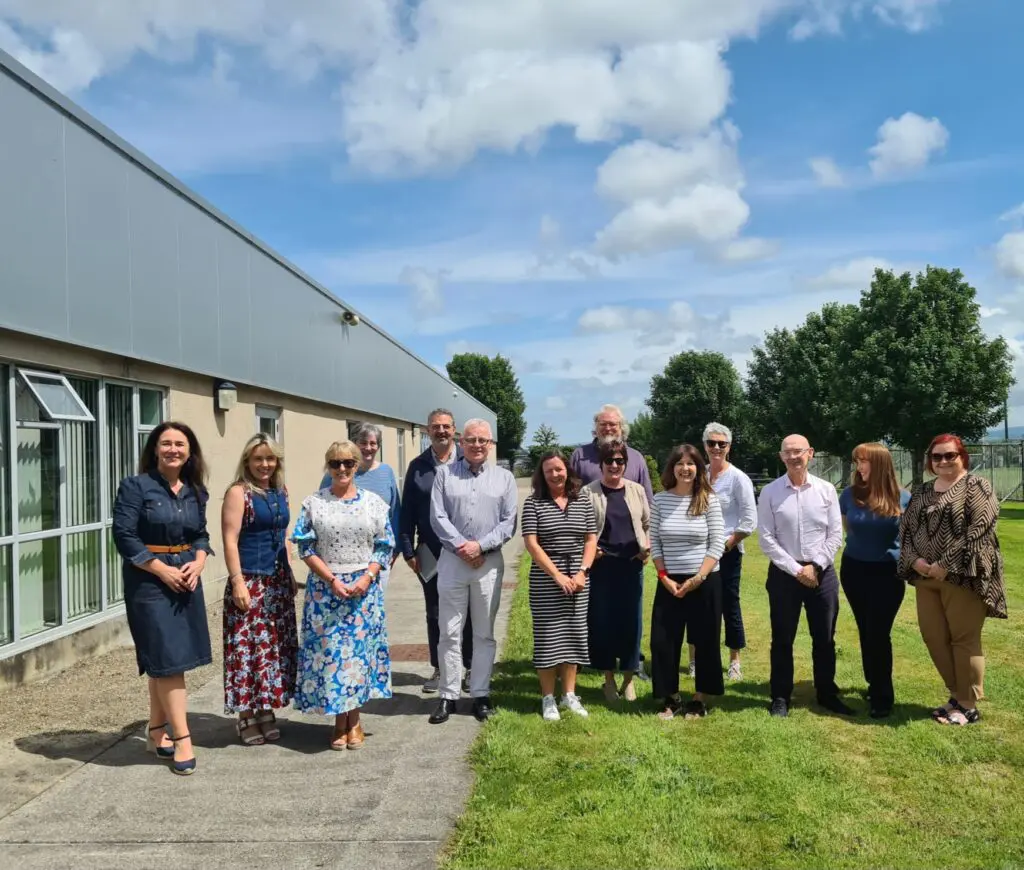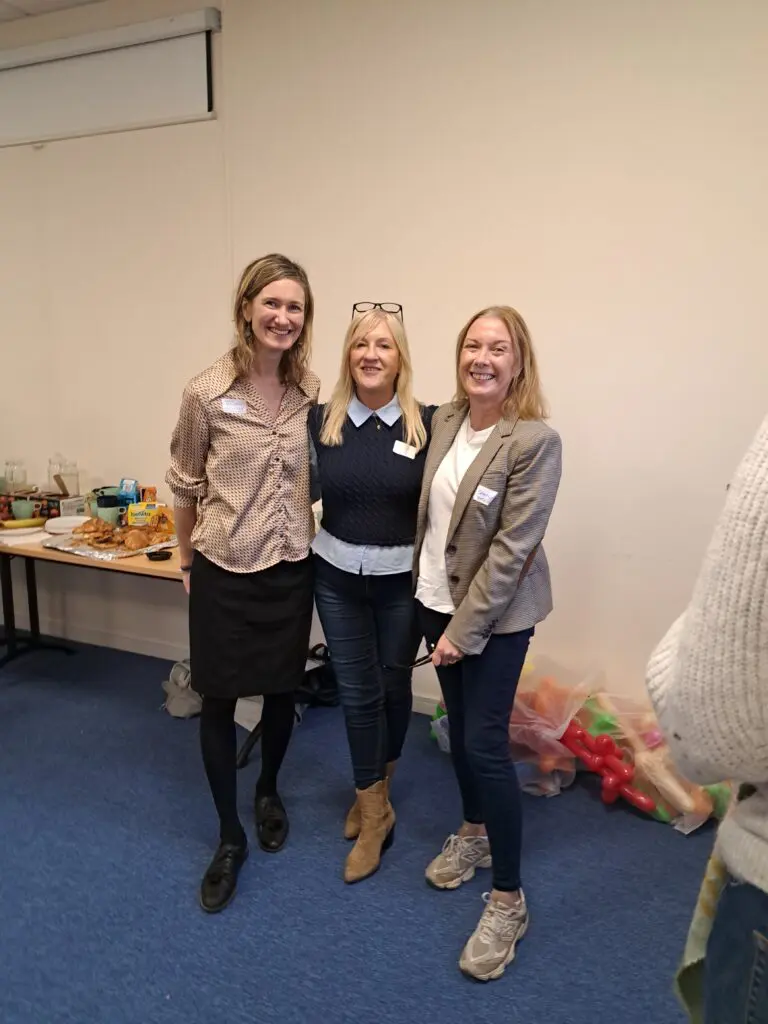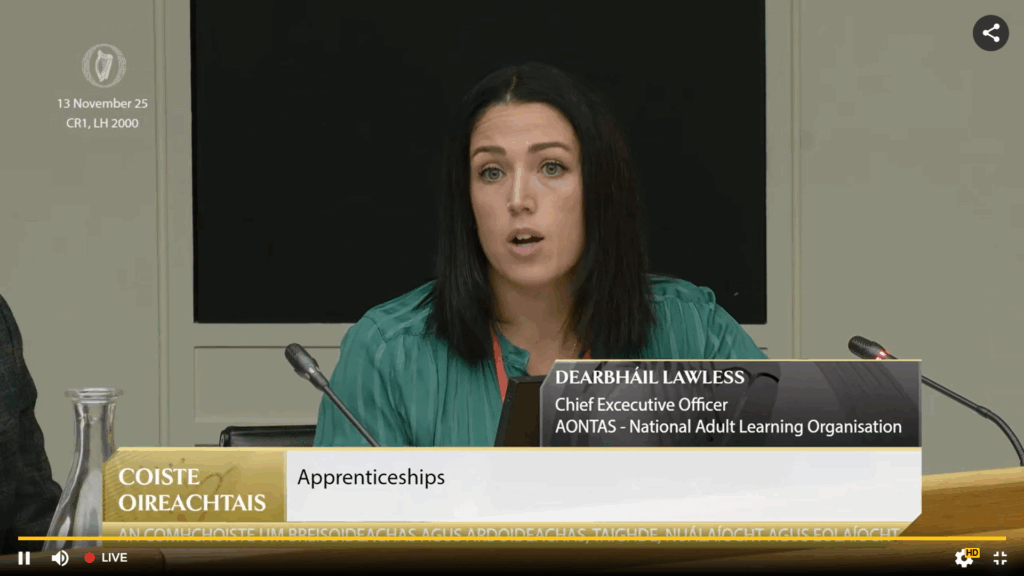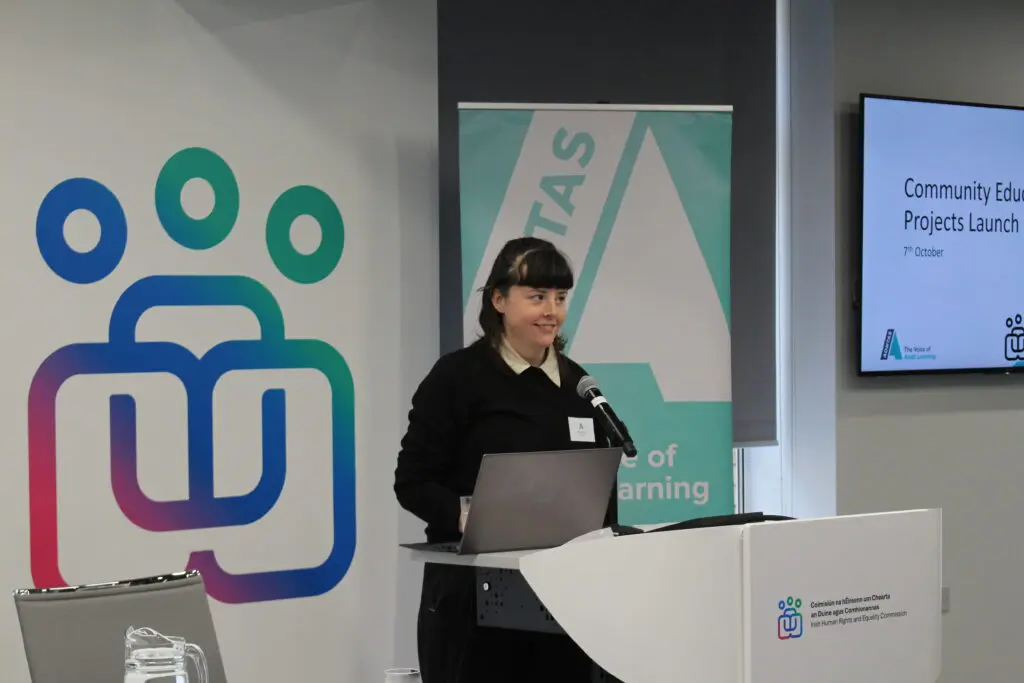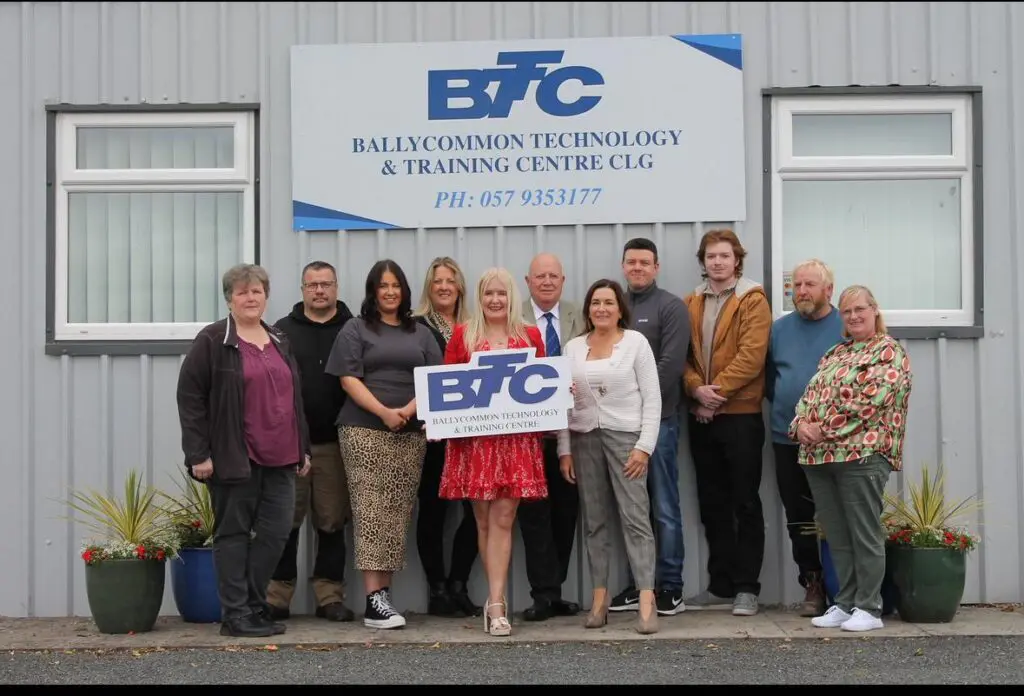There is an urgent need for ringfenced, multi-annual funding if community education is to provide a truly supportive learning environment that will address long-term needs in Northern Ireland. That’s according our new research report, the AONTAS Northern Ireland Community Education Census. We launched the census at a special event in Parliament Buildings, Stormont on Friday 8th September.
This report is the first of its kind, with feedback from sixty organisations across the Voluntary, Community & Social Enterprise (VCSE) sector in Northern Ireland. The findings from this report show community education to have a profound impact for a huge number of learners in Northern Ireland. The survey, which was concerned with the academic year from 2021 to 2022, revealed that these 60 participating organisations delivered almost 800 courses to over 50 thousand people. This is part of AONTAS’s ongoing work in collaborating with community education providers in Northern Ireland.
The report focuses on how the sector could be better supported and made more sustainable. It found that the VCSE sector is particularly strong in engaging with people with limited access to mainstream or traditional education, including women – perhaps single mothers or carers – and people who live in areas of high unemployment and poverty. Community education can offer these groups of people not just skills – such as digital or literacy skills – but also a network of supports and a way of building confidence and connection with others.
Funding Challenges:
Despite their important work, many of the accredited courses are not funded systematically or sustainably. In survey responses, the number of funders per organisation varied between one and eleven. However, 50 different funders were identified across both accredited and non-accredited courses.
Six government departments fund community education. For accredited learning, a large proportion of organisations receive Government support. 73% of survey respondents said their organisation was providing accredited courses in 2021-2022, and the top three funders for accredited learning were Department for Communities, Department for the Economy, and the National Lottery Community Fund.
In addition, 85% of participants in the research stated that their organisation offers non-accredited courses, primarily relating to health and wellbeing, community development, and creative arts. They are also funded through a huge range of funding streams, with Local Councils, Department for Communities, and the National Lottery Community Fund being the top three funders.
In order to continue to sustainably provide the services and supports that learners really need, reliable ringfenced, multi-annual funding is urgently required for community education organisations in Northern Ireland.
Measuring the Impact of Community Education:
Many community education organisations also offer support like career guidance, financial advice, food or meal provision, childcare, domestic violence services, and mental health supports.
According to one person quoted in the report, “[Community education] has saved the Government a fortune not having to treat me for mental health.”
Another stated that community education “gives you a chance to shine – to find yourself as an individual.”
Because the impact of community education can be unquantifiable – such as helping someone feel safer or more cared for – the report found that qualitative evaluation “fails to capture the full impact of community education”. There is currently no “appropriate mechanism for sharing success”, and many organisations are already over-burdened with administrative work that comes with applying for and maintaining multiple funding streams.
One provider quoted in the report stated: “We’ve had 45 to 50 funders over the past 5 to 6 years.”
Another stated: “I had to let down a woman the other day […] She came because she’d heard about one of our programmes, but the funding’s run out and we’re not running it anymore.”
Speaking about the precarity of funding and the lack of security for staff, one practitioner said: “Everybody every year goes on notice in February and often don’t know until the end of March if they are secure for another year.”
Cost-of-Living Crisis:
This precarity is now even more pronounced due to the cost-of-living crisis. The report found that 61% of participants who are providers of community education have seen an increase in requests for food or meal provision services, like foodbanks, meals on wheels, or free lunches. 60% indicated an increase in requests for financial advice. 68% of participants have seen an increase in requests for mental health supports. The report also found that the COVID-19 pandemic continues to have an impact on people’s mental health and motivation to learn, especially in under-resourced areas and among elderly people.
Community education providers are concerned that, with costs on the rise, cuts to classes may be necessary, especially with a lack of sufficient funding.
This would be highly detrimental to people, particularly those who have negative experiences of education or who are living in poverty, and who are trying to return to learning. Community education can offer not only benefits for people’s mental health and personal wellbeing, but also act as a stepping stone to further education. According to one provider, quoted in the report: “We have stats, we have testimonials, we have evidence of people going on to Masters and PhD levels who started out in our centre.”
Recommendations for Action:
The report suggests that ringfenced funding for community education is urgently required – funding that will take into account all the resources needed to provide a truly supportive learning environment. It also states the need for recognition of community education, not just in terms of financial support, but also in terms of inclusion in policy and policymaking at local and regional levels.
The report highlights the need for further investment into impact measurement and the development of consistent reporting structures. It also points out the need for a mechanism to facilitate relationship-building between community providers and statutory providers and policymakers, as effective collaboration requires support, structure and purpose.
Ultimately, it indicates the need for a single strategy for adult learning that unites all the providing sectors and which would help address these concerns.
 Next Steps:
Next Steps:
At the launch of the AONTAS Northern Ireland Community Education Census report on Friday 8th September in Stormont, Belfast, attendees heard from Ian Getgood, Head of Skills Strategy Branch at Department for the Economy, who affirmed his interest and support of this work, noting: “We want to hear the stories.” Representatives from the Department have expressed their interest in supporting community education groups and Learner Voice.
Speakers at the event referred to the new AONTAS NI Census report as “backing up” and “adding weight” to the evidence in Skills Strategy for Northern Ireland, published in 2022. AONTAS will continue to work with local groups and policymakers to strengthen collaboration and build networks. This includes the Lifelong Learning Alliance and the Forum for Adult Learning in Northern Ireland (FALNI). We will also host another event in Belfast in February 2024, with more details to follow.
Speaking about the new report, our CEO Dearbháil Lawless states: “We aim to be a catalyst for change and increase support for the life-changing power of community education.”
Find out more about our new AONTAS Community Education Map and learn how to #PutYourselfOnTheMap


 Next Steps:
Next Steps: